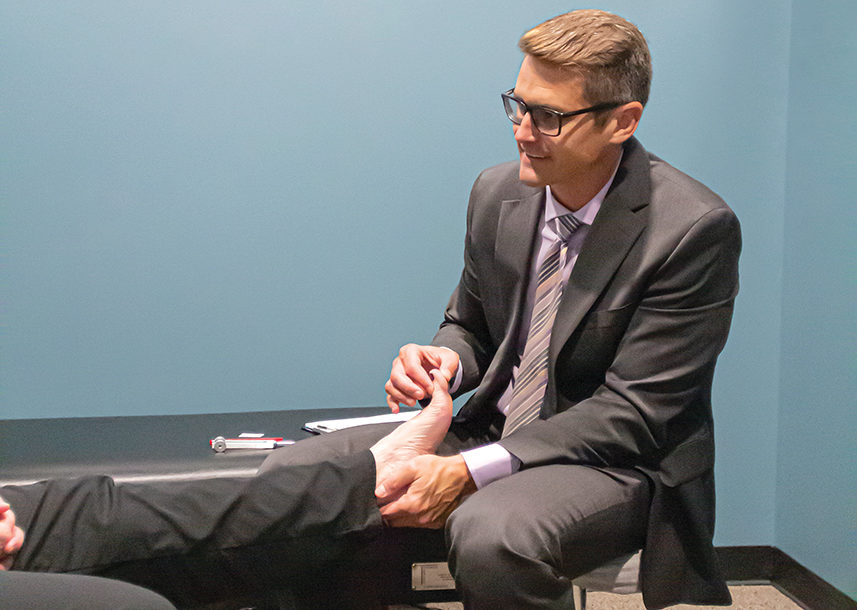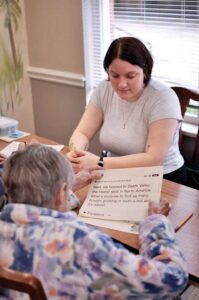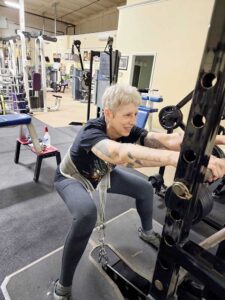By Alexander Germanis
We are connected to our world by far more than just the laws of physics. Our senses of sight, smell, hearing, and taste enable us to react and interact to so much of the world around us.
Touch, however, is the sense we use not just to react and interact to the world but also to act upon it. Yet our sense of touch is perhaps the one we most take for granted until a nerve misfires or a limb ‘falls asleep.’
The sense of touch is dependent upon good nerve health and when those nerves start to malfunction, a myriad of symptoms may result. Numbness, tingling, pain, cramping, and loss of muscle strength or motor function are just some of the signs of a condition known as peripheral neuropathy.
For those who may be suffering from neuropathy, there is One Degree Functional Health in East Peoria.
A ‘New’ Condition
While it is somewhat newly understood in medical terms, peripheral neuropathy is a condition that has been around for ages. For years it was simply misdiagnosed as a side effect of other diseases.
Its recent ‘arrival’ to the annals of medicine notwithstanding, the dangers of neuropathy are very real and very far-reaching. Aside from the symptoms of numbness, tingling, and burning in the hands, legs, and feet, there are many other common symptoms.
Neuropathy may also affect one’s ability to move, causing one to shuffle or lose strength in the muscles or in one’s grip. As anyone who has had a foot or leg fall asleep can attest to, the ability to simply walk or stand upright is almost totally compromised when the nerves are not functioning properly. These neuropathic problems can then lead to serious issues with balance and falling, which can in turn lead to serious injury.
“Neuropathy is one hundred percent progressive,” states One Degree Functional Health Office Manager Sarah Huber. “It is guaranteed to get worse if left untreated. Untreated it leads to being dependent upon a walker or wheelchair and then eventually amputation.”
The causes of it are more numerous than its symptoms. While diabetes, kidney disease, and liver disease have long been linked with it, chemical exposure, infection, nerve impingement, surgery, alcoholism, chemotherapy, and poor metabolic health can all be causes. To date, there are over 100 cataloged causes.
“Unfortunately, a vast majority of the cases of neuropathy that we see are idiopathic,” Sarah shares. This means, in most cases, the direct cause of the actual onset of neuropathy is unknown.
The onset itself, however, is understood. When blood vessels around a nerve begin to die, the nerve is starved of the nutrients and oxygen once brought by the blood. Like a plant cut off from water and sunlight the nerve then begins to whither and die.
Treating the Root of the Problem
Because neuropathy is relatively new in regard to it being an understood ailment, treatments are still being developed. “Neuropathy is typically treated with the use of medications such as Gabapentin, Cymbalta, and Lyrica,” Sarah says. “Surgery is also used to treat neuropathy.”
Many treatments, unfortunately, are little more than “Band-Aids.” They treat merely the symptoms of neuropathy rather than addressing the cause of it.
This is where One Degree Functional Health comes in. “We offer a solution to the problem that will heal the damage caused by neuropathy instead of just masking the symptoms,” Sarah assures.
The first step is a 16-point exam to determine the cause of a patient’s particular form of neuropathy, checking for blood flow and the degree of sensory loss. “Our neuropathy programs are specifically designed for each patient depending on the amount of sensory loss that they have and what symptoms they suffer from,” she explains.
Although the exact course of action differs from patient to patient, the goal is the same: to increase the blood flow to the nerves, to “re-educate” the nerves back to normal function, and decrease the pain.
One way blood flow is increased to the nerves is through a process called angiogenesis, meaning new blood vessels form from old ones. Low Level Light Therapy (LLLT) is used to stimulate these blood vessels, which then in turn feed the affected nerves.
One Degree’s neuropathy therapy has a very positive 90-95 percent success rate, all without the need for drugs or surgery.
Leading the Charge
At the head of One Degree Functional Health is Dr. William G. Weinman. Board certified in neuropathy, Dr. Weinman was led to neuropathy care due to his own experiences with it.
“He contracted a parasite while adopting his son in Ethiopia, which led to some really serious health issues,” Sarah shares. “Like our patients, he was suffering from autoimmune issues and tingling, numbness, and burning. He went from being an active participant in Iron Man triathlons to only being able to lie in bed, in pain, after completing his workday. His main concern was that he would not be able to walk his daughters down the aisle someday.”
Every standard form of medical treatment proving unsuccessful, Dr. Weinman’s health continued to deteriorate. His solution, he realized, would only be found if he searched for it himself.
“This is how he became established with the group of doctors that treat neuropathy,” Sarah states. “Through the treatments we offer in our office he was able to cure his health issues and regain his quality of life.”
Dr. Weinman’s story of success is one he wants others to share in, Sarah adds. “We want to let people know that there is hope and an alternative treatment that does not involve medications and surgery. We want to get the word out that we are here.”
Stay in Touch
If you were to lay a diagram of a tree next to one of our nervous and circulatory systems, you would see striking parallels. Without those systems functioning properly, our limbs will weaken and die, just like the branches of a tree. And as with the tree, the warmth of the sun, the caress of the breeze, and the cool touch of water will be lost to limbs without feeling.
Fortunately, with One Degree Functional Health’s neuropathy treatment, there is hope. By bringing new life to your nerves, they can keep your sense of touch alive and well and keep you interacting and acting upon your world for years to come.
One Degree Functional Health is located at 3840 N. Main Street, Suite A in East Peoria, IL. We also offer services in knee pain, shoulder pain, gut health, and spinal decompression. Call us at (309) 698-2500 or visit us at www.onedegreehealth.net.
For additional informative and inspirational articles visit 50 Plus News and Views Greater Peoria Area online today.










